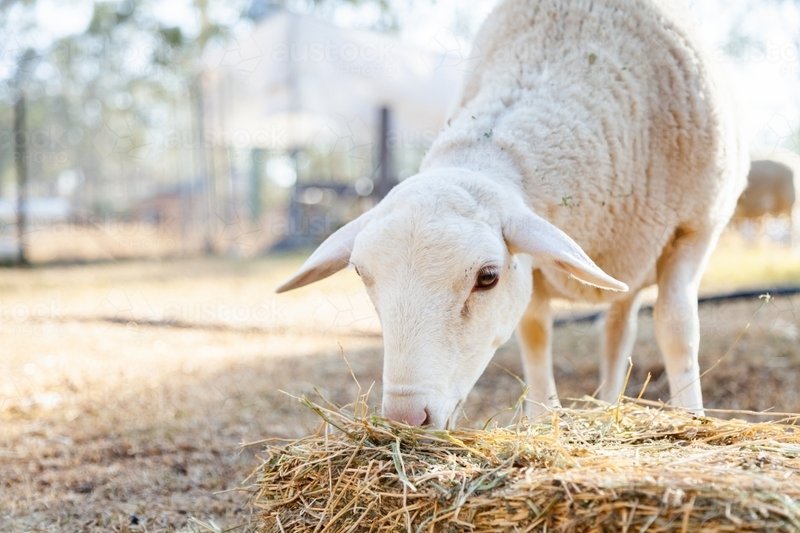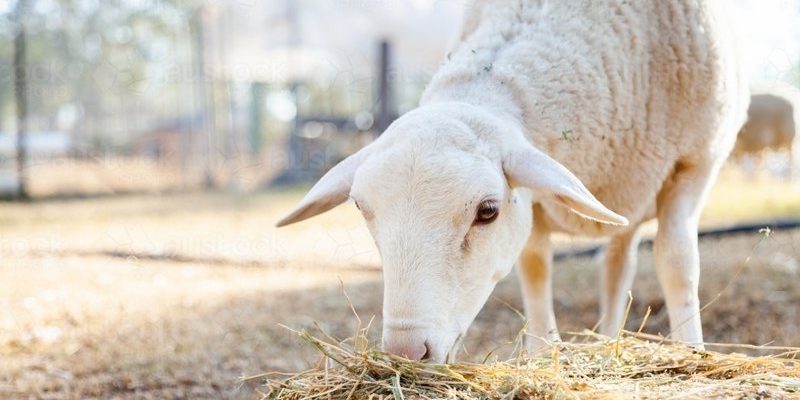
Imagine sheep as little lawnmowers—they graze and munch their way through fields, helping to keep vegetation in check while providing us with wool, milk, and meat. But just like you wouldn’t want to only eat one type of food every day, sheep also need a balanced diet. In this article, we’ll break down the different types of food sheep eat, from grazing to hay and even supplemental feeding. Sit back and let’s chew through the details together!
The Basics of Sheep Nutrition
When it comes to sheep, their diet is primarily focused on roughages, which are things like grasses and legumes. These give them the fiber they need to properly digest their food. Fiber is crucial because it helps keep their rumen—one of their stomach compartments—working efficiently. Sheep are ruminants, so they have unique stomach systems that allow them to break down tough plant material.
But what exactly do they eat? Here’s a quick breakdown:
- Forage: This includes a variety of grasses and legumes, which are high in fiber and low in energy.
- Concentrates: These are energy-dense feeds, including grains like corn or barley.
- Mineral Supplements: Just like we take vitamins, sheep need minerals such as salt and calcium.
Understanding these basics helps you grasp how to properly feed sheep, whether you’re raising a few at home or managing a bigger flock.
Grazing: The Natural Diet
Grazing is where sheep really shine. They spend a good chunk of their day wandering around pastures, feasting on grass, clover, and various plants. This not only provides them with essential nutrients but also allows for natural behaviors, like socializing and exercising.
When sheep graze, they’re typically looking for younger, more tender plants. These are more nutritious than older, tougher grasses. It’s kind of like choosing a salad over an old piece of lettuce—fresher is always better! Sheep can eat a surprising variety of plants, but some might be harmful, so it’s crucial to keep an eye on what’s available to them.
On the flip side, if a pasture is overgrazed, sheep can struggle to find enough food. This is why a rotational grazing system is often recommended. It allows the grass to recover while ensuring the sheep have a steady supply of fresh forage.
The Role of Hay in Their Diet
While grazing is ideal, there are times when pasture isn’t available. This is where hay becomes a game changer. Hay is dried grass or legumes that’s stored for later use, and it’s a great alternative when fresh grazing options are limited, particularly during winter months.
Feeding hay is essential for maintaining a balanced diet. It provides the necessary fiber sheep need while also keeping their digestive systems running smoothly. When selecting hay for sheep, look for good quality, free from mold, and rich in nutrients.
There are different types of hay as well, like alfalfa and timothy. Alfalfa is higher in protein, making it a great choice for pregnant or lactating ewes, while timothy is excellent for maintaining healthy weight in adult sheep. Mixing up hay types can also help ensure they get a range of nutrients.
Supplemental Feeding: When and Why
Sometimes, no matter how good the grazing or hay is, sheep need a little extra help in their diet. Supplemental feeding can be critical, especially during certain times of the year or for specific needs. For example, pregnant ewes or growing lambs benefit from extra protein and minerals because they have higher nutritional demands.
You might be wondering what to use for supplements. Common options include grains, pellets, or specifically designed sheep feeds. These often come with vital vitamins and minerals that support overall health. It’s similar to how a student might need extra help in subjects they find challenging; sheep can also benefit from a bit of extra aid in their diets.
However, it’s essential to introduce supplements gradually. Too much too fast can upset their stomachs. Always keep an eye on their reactions, and consult with a vet if you’re uncertain about the best approach.
Common Feeding Mistakes to Avoid
Feeding sheep might sound simple, but there are a few common pitfalls to watch out for. The first mistake is overfeeding concentrates. While grains and supplements are beneficial, too much can lead to digestive issues, including bloating or acidosis.
Another mistake is failing to provide enough fresh water. Sheep drink a lot, especially if they’re eating dry feed like hay or grain. Make sure they always have access to clean, fresh water. It’s as important as food, really!
Finally, be cautious about what you allow them to graze. Some plants, like certain weeds or ornamental plants, can be toxic to sheep. Knowing what’s in their environment is key to their health and safety.
So there you have it! Sheep are creatures of habit, and their diet reflects that. They thrive on a mix of natural grazing, hay, and occasional supplements, all contributing to their health and productivity. Whether they’re munching on fresh grass or nibbling hay in the barn, what they eat plays a vital role in their overall well-being. By understanding their dietary needs and providing a balanced mix of forage, hay, and supplements, you can help keep your sheep healthy and happy.
Remember, just like us, sheep need variety and balance in their diets. If you take the time to pay attention to what they’re eating, you’ll set them up for a long, healthy life. Happy sheep-keeping!

